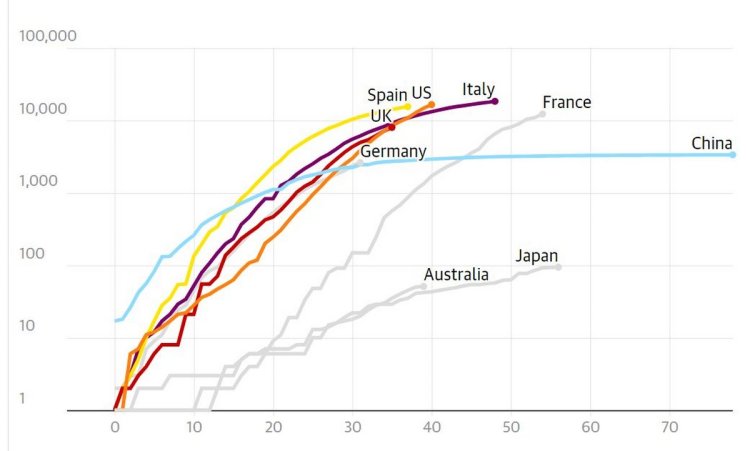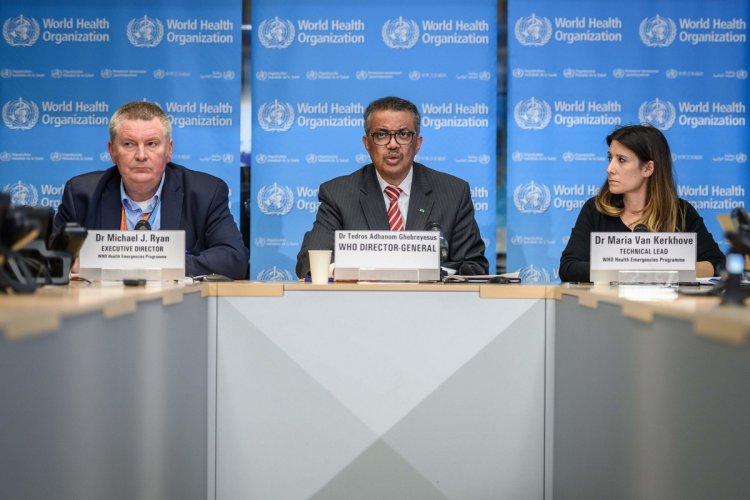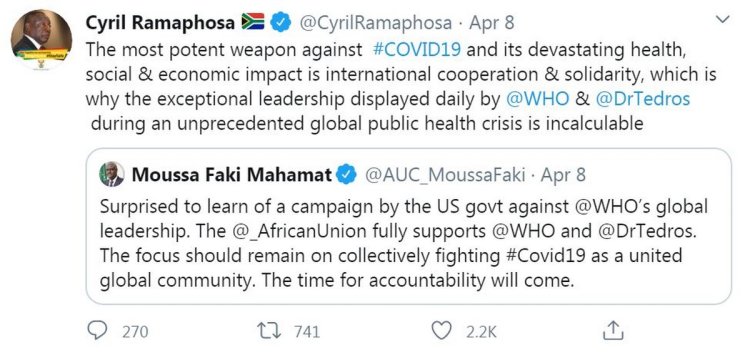WHO Dismisses President Trump's Criticism On China-Centric
Ankita Chetana |Apr 10, 2020
On Wednesday, the head of WHO fired back after US President Donald Trump had criticized how this organization has a bias for China. Read the details!
- Trump Announces Historic U.S. Airstrikes on Iranian Nuclear Facilities, Sparks Global Debate
- Pilot Threatens To Dump Pro-Trump Passengers Mid-Flight; Trump Impeachment Starts Today
- Donald Trump Dethroned Obama To Become The Most Admired Man In America In 2020
A few days back, US President Trump talked about a possible decision of cutting funding the World Health Organization during a White House daily conference. He criticized that WHO was wrong when sharing about the coronavirus pandemic and stood by China's side while this country still hides some threats of the virus.
On April 8, Dr. Hans Kluge, the director of WHO in Europe claimed that this is not the time to cut funding as the pandemic is rushing to the world. In a conference in Geneva, WHO Director-General Tedros Adhanom Ghebreyesus addressed:
"I know I didn't address your question specifically. I don't think that's necessary. We shouldn't waste time pointing fingers. We need time to unite...Let's unite... The worst is yet to come if we don't rush to ensure unity."
Disagreements between the WHO and President Trump got higher on April 7 when the US recorded the highest number of death cases of more than 1,800 people within 24 hours.
Trump and his administrations, as well as sympathetic media that have supported him over the past months, faulted the WHO for being China-centric and requested an independent investigation on this organization. For President Trump, he assured that for several recent years, the WHO has a bias for China and treated to freeze the US aid for the organization.
He stated: "We're going to investigate it, we're going to look at it. But we will look at ending funding, yeah, because you know what, they called it wrong, and if you look back over the years even, everything seems to be very biased toward China."

After Trump's statement, many people suggested that the pressure he put on the WHO aims at distracting American people from downsides in the president's policy in preparation and resilience against the pandemic.
On the other hand, Wuhan (China) has started to back to its normal life, which makes many US rightwingers afraid of China's increasing mark due to its economic recovery whereas the US is still on the battle against COVID-19.

Earlier, Dr. Tedros also indicated that the WHO doesn't bias toward any country. The action has been taken differently amongst the countries because of the difference of the national level. He summed up:
"Please don't politicize this virus. It exploits the differences you have at the national level. If you want to be exploited and if you want to have many more body bags, then you do it. If you don't want many more body bags, then you refrain from politicizing it. My short message is: Please quarantine politicizing Covid. The unity of your country will be very important to defeat this dangerous virus."
Several insiders of the WHO worry that the organization's prestige will be significantly taken down when the world is heading to the coronavirus outbreak based on the global consultant.
Besides, some administration from Africa agreed with the WHO's way on the combat with coronavirus.


Special envoy on COVID-19 of the World Health Organization David Nabarro admitted that some organizations, governments, and individuals have to take responsibility for what happened during the pandemic spread. However, he suggested to accuse them later when the coronavirus crisis comes to an end.
He said: "The world is in the middle of an extraordinary and epic struggle against a virus that is completely new. With something like this each decision that we make is closely examined - as it should be... But for now I would suggest we wait until the time the emergency subsides, when of course there will be inquiries, and individuals, governments and institutions are scrutinised. We are trying to combine science and risk-assessment as we connect with the people who are making really tough decisions. They need to be able to trust us and have confidence in us."
- Tag


Comments
Sort by Newest | Popular